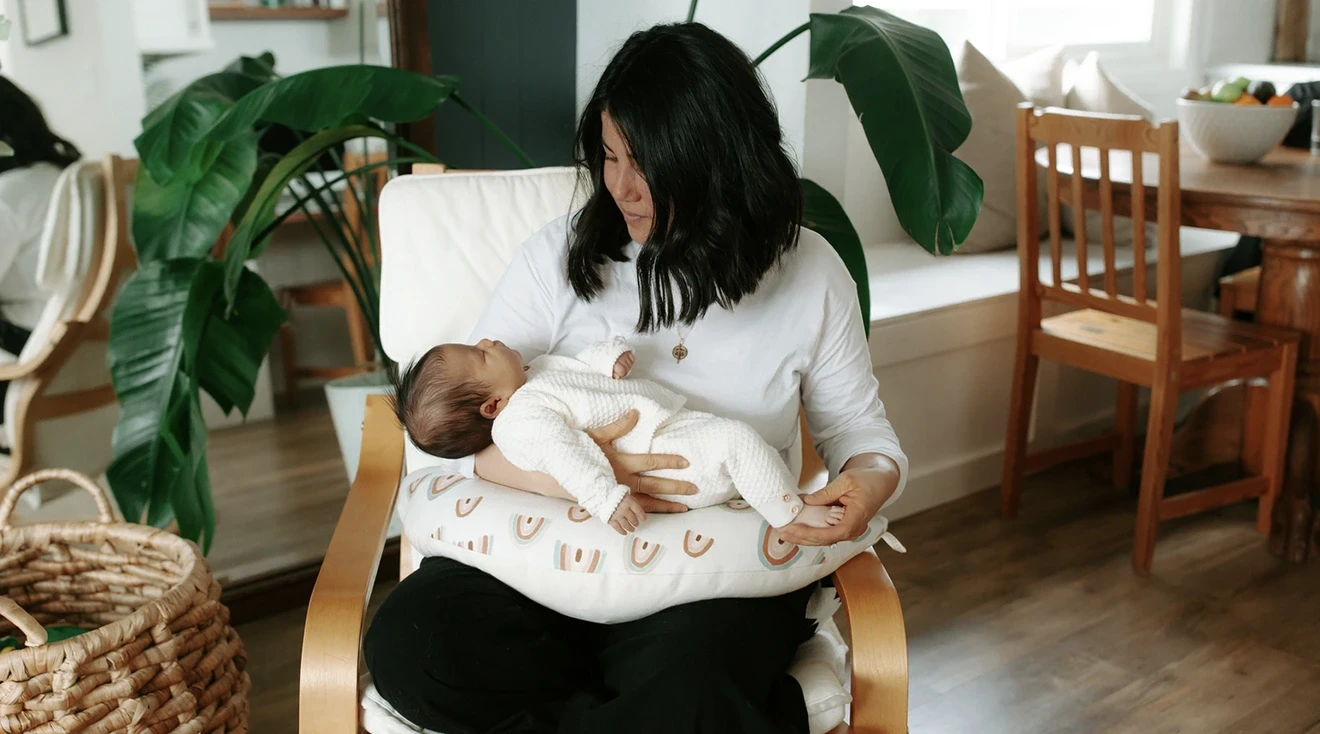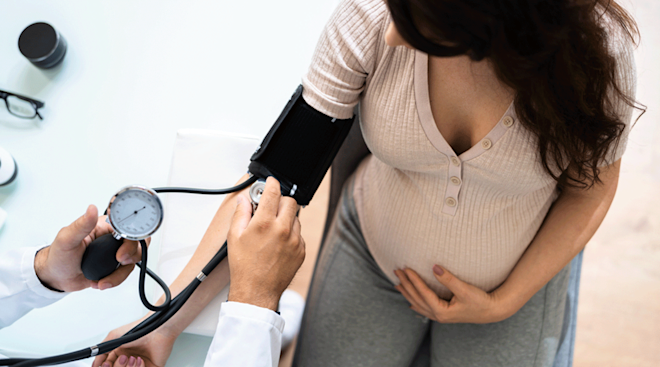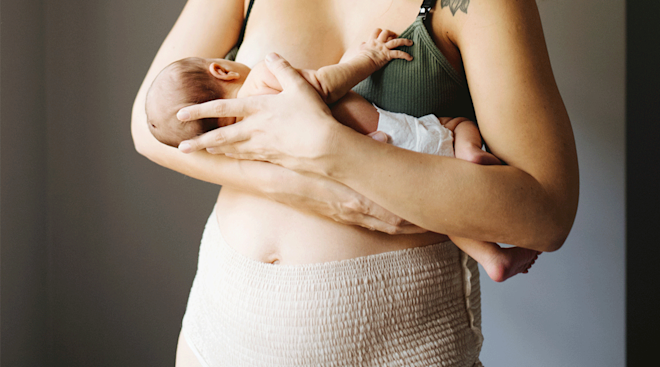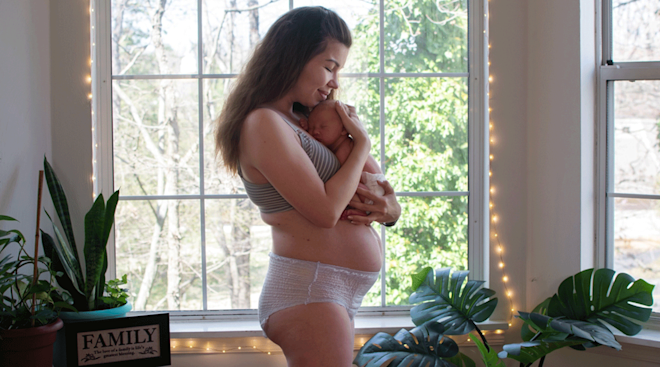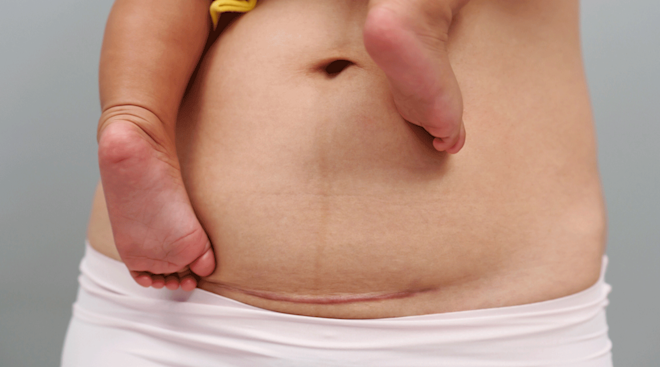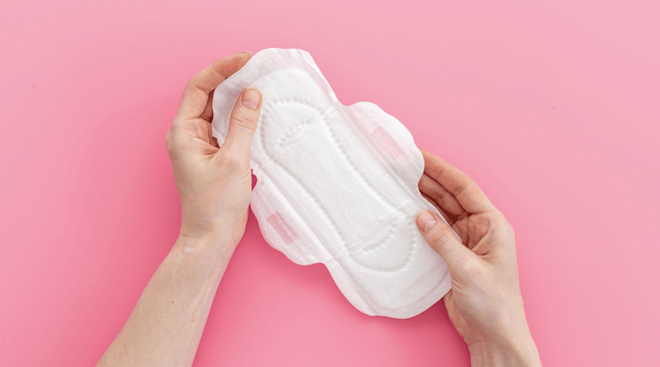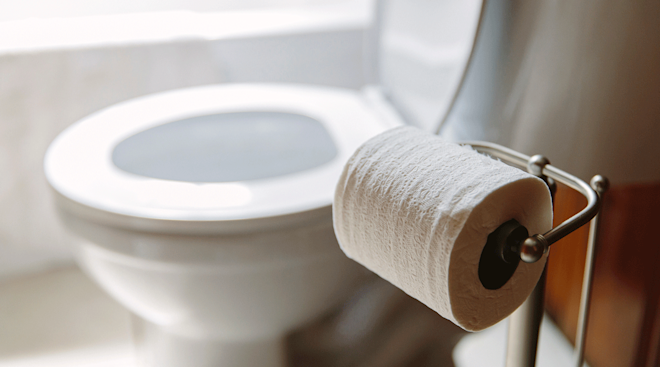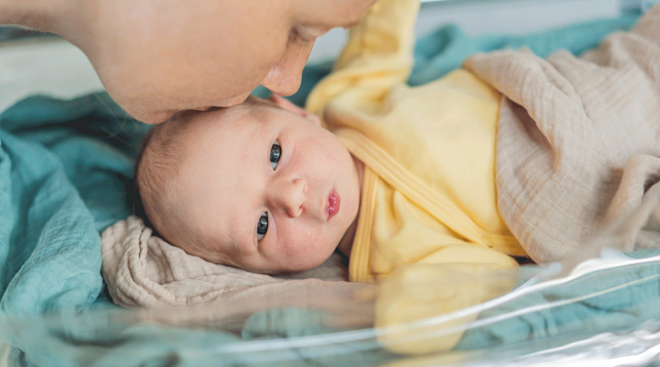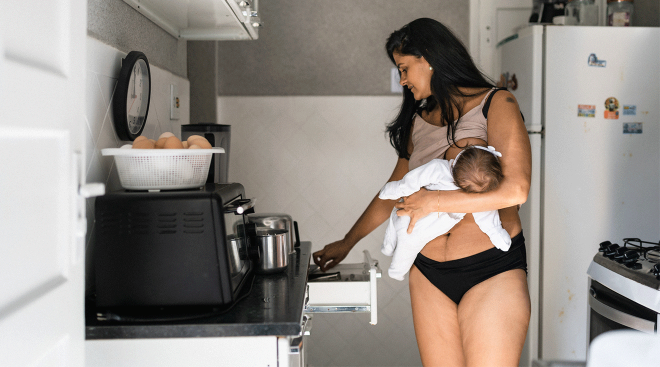Why You Might Be Experiencing Postpartum Constipation
The postpartum period can be thrilling. You’re getting to know your little bundle of joy and reveling in that new-mom glow. But it can also come with some unwelcome—and unexpected—health issues. One unpleasant surprise you might encounter: postpartum constipation.
According to the National Institute of Health, about 16 percent of American adults experience constipation at some point. But being pregnant or having recently given birth raises your risk for constipation. In other words, if you’re feeling plugged up post-baby, you’re in good company. Rest assured, if you’re not going as often as you’d like, there are a few things you can do to get relief. Read on to learn why postpartum constipation occurs, and snag some tips to help you get things moving again.
While most people think of constipation as having trouble pooping, there’s a little more to it than that. Constipation is a condition classified by having less than three bowel movements a week; bowels that are hard, dry, lumpy or painful to pass and/or a feeling that you didn’t get everything out, according to the National Institute of Diabetes and Digestive and Kidney Diseases (NIDDK).
Postpartum constipation is “any type of constipation occurring in the postpartum period,” says Christine Greves, MD, a board-certified ob-gyn at the Winnie Palmer Hospital for Women and Babies in Orlando. With postpartum constipation, you’ll experience the same symptoms that you’d have with constipation during any other time in your life—it just happens after you give birth, Greves says.
There are a bunch of potential reasons why you may find yourself struggling with constipation after having a baby. These are the most common culprits:
- Postpartum hormones. During the postpartum period, levels of the hormone progesterone remain elevated in your body, says G. Thomas Ruiz, MD, an ob-gyn at MemorialCare Orange Coast Medical Center in Fountain Valley, California. Research suggests that progesterone has been linked to slower motility in the bowel, making it hard for the body to move stool through the gut. Cue postpartum constipation.
- A laceration or tear. If you gave birth vaginally, you may have a laceration or tear around your vagina. “Having a bowel movement will be painful, and that may inhibit you a little bit,” Ruiz says. But holding in poop can raise your risk of constipation, he adds.
- Pain medication. “If you’ve gotten an epidural or had any narcotics during or after labor, that’ll slow down gut motility,” Ruiz says. Women who’ve had a c-section are typically prescribed painkillers for a few days after giving birth, which raises the risk of postpartum constipation, he adds.
- Dehydration. You may end up dehydrated after giving birth or when you start breastfeeding, Greves says, and that can lead to postpartum constipation. “Everything enters your gut as a mush and, as stool moves into the large intestine, water is drawn out of the stool to make it formed,” Ruiz explains. “If you’re dehydrated, your body is going to reclaim most of the water—and now you’ll have stool that’s harder to move through the system.”
Feeling the discomfort of postpartum constipation. There are a few things you can do to get relief. Below, some tips:
- Stay well hydrated. It’s important to get things moving again, says Ruiz. Greves adds that you may need to drink even more water if you’re breastfeeding. She recommends looking at the color of your urine—if you’re well hydrated, it should be pale yellow or clear.
- Increase your fiber intake. Ruiz suggests adding whole grain bread, bran muffins and fruits to your diet.
- Try to get more movement. This can stimulate the muscles in your gut to push stool through, Greves says.
- Consider a stool softener. Your doctor may actually recommend that you take a stool softener if you’re on pain medication, given the link between certain drugs and constipation, Ruiz says. But anyone who doesn’t get relief from more fluids, fiber and movement may want to consider this option. “The good thing about stool softeners is that they’re safe for breastfeeding—they’re not absorbed into the body,” he says. (If you’re unsure whether a particular stool softener is safe to use while breastfeeding, check with your child’s pediatrician or your ob-gyn.)
The American College of Obstetricians and Gynecologists (ACOG) recommends being mindful of your fiber intake to prevent constipation. That means having foods like fruits, vegetables, whole grains, beans, nuts and seeds. ACOG specifically recommends aiming for 25 grams of fiber in your diet a day. As mentioned, hydrating can also help stave off postpartum constipation.
The length of your postpartum constipation depends on what’s causing it in the first place, Greves says. However, Ruiz notes that it usually goes away within a few weeks.
If you’re dealing with postpartum constipation that won’t let up, Greves suggests talking to your doctor. They should be able to offer personalized recommendations to help you get relief.
Please note: The Bump and the materials and information it contains are not intended to, and do not constitute, medical or other health advice or diagnosis and should not be used as such. You should always consult with a qualified physician or health professional about your specific circumstances.
Plus, more from The Bump:
Christine Greves, MD, is a board-certified ob-gyn at the Winnie Palmer Hospital for Women and Babies in Orlando. She earned her medical degree from the University of South Florida College of Medicine.
G. Thomas Ruiz, MD, is an ob-gyn at MemorialCare Orange Coast Medical Center in Fountain Valley, California. He earned his medical degree at UC Irvine School of Medicine in California.
National Institute of Health, Definition and Facts for Constipation, May 2018
National Institute of Diabetes and Digestive and Kidney Diseases (NIDDK), Constipation
The Korean Journal of Physiology & Pharmacology, Estrogen Rather Than Progesterone Cause Constipation in Both Female and Male Mice, October 2013
American College of Obstetricians and Gynecologists (ACOG), What Can Help With Constipation During Pregnancy?, October 2020
Navigate forward to interact with the calendar and select a date. Press the question mark key to get the keyboard shortcuts for changing dates.
































